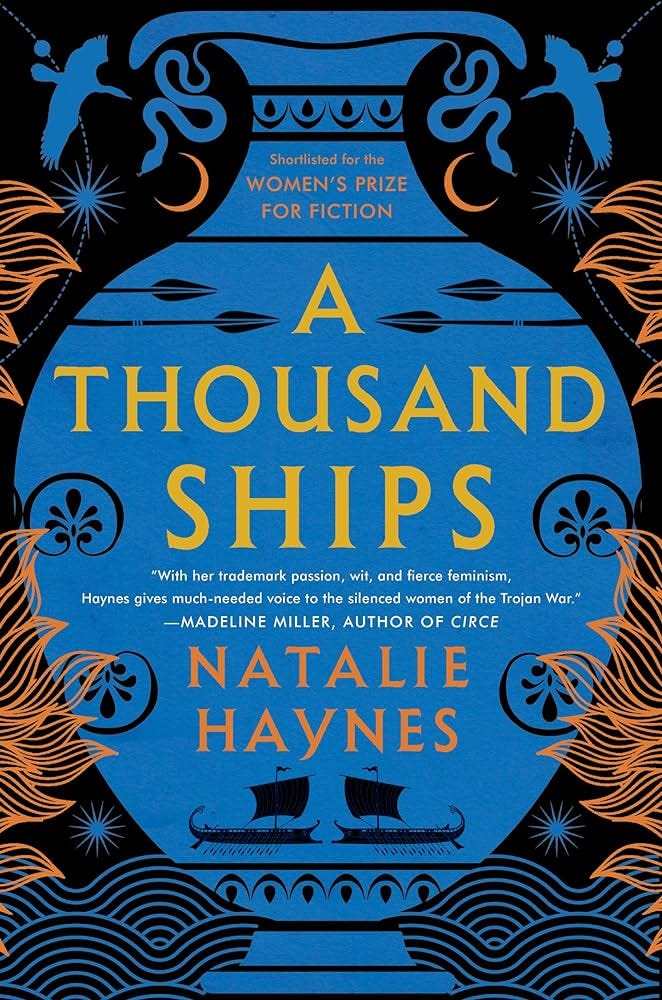When I go through a “phase” of something, I become a bottomless pit for information about that topic.
My 2019 Diana phase involved not just reading the Andrew Morton “unauthorized” (but very much authorized) biography, but also dissecting the interview where Charles totally beefs up discussing love “whatever that means” and falling down a rabbit hole of conspiracy theories about how that car accident was actually a murder.
About a year before that, I went through a Caitlin Doughty, death positivity phase, where I watched every single one of her hundreds of educational youtube videos and read her then two books about the funeral industry. (If this interests you even a little bit, the books are this one and this one. Cannot recommend them enough, even if you’re not going through a Caitlin Doughty death positivity phase.) And then I went out of my way to meet her and guess what, she is one of the loveliest, brightest lights of a human I’ve ever experienced.
Why am I telling you this?
Because I need to somehow explain how deep I am into Greek mythology right now.
It started with a video game.
I picked up Hades thinking it would a little fighty punchy button mashy game, but OH MY GODS it was so much more than that. You play as Zagreus, the son of Hades who is determined to leave the Underworld and explore the world up above just like Ariel. Except instead of seeking assistance from a sea witch, Zagreus seeks help from his relatives up on Mount Olympus. Along the way, he’s cracking jokes with Dionysus, the god of wine, Aphrodite, the goddess of love, and Chaos, the mother of literally all things ever, just to name a few. It’s so obviously written by people who LOVE Greek mythology and put their whole souls into crafting their spin on the classics.
Even though the goal of the game is to defeat multi-headed hydras and pet Cerberus the three-headed dog, the relationships quickly became my main focus. If I collect enough diamonds, I can reunite Achilles and Patroclus! If I give Thanatos, the god of death, enough ambrosia, we might make out! So fun, so invigorating. But I soon found out a big downside to the game: I can’t play it while I’m driving.
So I turned to podcasts.
First, I found Let’s Talk About Myths, Baby. What a gem. The host, Liv Albert, translates the myths from the original Greek into millennial humor and all of the episodes I’ve listened to were very entertaining and feminist and fascinating. Liv seems like the kind of gal I’d get my first tattoo with, ya know?
Then, I tried reading Ovid’s Metamorphoses, but decided hearing other people talk about Metamorphoses is way more fun.
Which led me to The Ancients. This podcast feels more like drinking tea in a dimly lit Oxford library with a chunky cat on my lap: British, sophisticated, cozy. Each episode is part story-telling and part interview, so you get the best of both worlds. Hearing the myth before the conversation always makes me feel smarter *adjusts glasses*
My favorite episode BY FAR is this one with Natalie Haynes, who I am convinced is an Olympian goddess undercover.
She explains the intricacies of various accounts of Helen of Troy, some of which I’d never even kinda heard of, and points out how each version impacts the entire narrative of the Trojan war. Her humor, even when delving into the sexism of Greek myth, is top tier and honestly this mythology phase might evolve into a Natalie Haynes phase, I’ll keep you updated.
Then came the books.
My most recent phase-related activity was listening to Natalie’s book A Thousand Ships (read by the author, hooray!!) — an 8 1/2 hour endeavor — in one sitting. I mean, I got up and moved around and ate food and stuff, but I couldn’t bring myself to close the book. The title references Helen of Troy, whose face “launched a thousand ships,” a.k.a caused the decade-long blood bath that was the Trojan War.
I looked it up and Helen only appears in The Iliad four times. Four. And the war is supposed to be about HER.
Natalie (yes, we’re on a first name basis, don’t worry about it) finally gave voices to the women who aren’t given the chance to express themselves in those original Greek texts. A Thousand Ships is narrated by women: the heartbroken queen of Troy, her psychic daughter, the impatient, at times vindictive army wives, even The Muse herself.
“When a war was ended, the men lost their lives. But the women lost everything else.” This story extends past the “heroism” of the war we learned about in AP English and brings the futileness of violence into perspective. And at times it is funny somehow! Incredible.
I just love it, okay?
✨ Hot Tip ✨
Sign up for an Audible free trial* to get one free audiobook! I like this option for when the waitlist for a book on Libby is 5,000 people deep.
*by using this affiliate link, you are keeping me and Mister fed; thank you
Thank you for letting me blather on about my current phase. I’ll be reading Natalie’s other book about Medusa and eating pomegranates in Hades until all of a sudden I won’t care anymore.
And then on to the next!!
Lots of Love,
Christina








